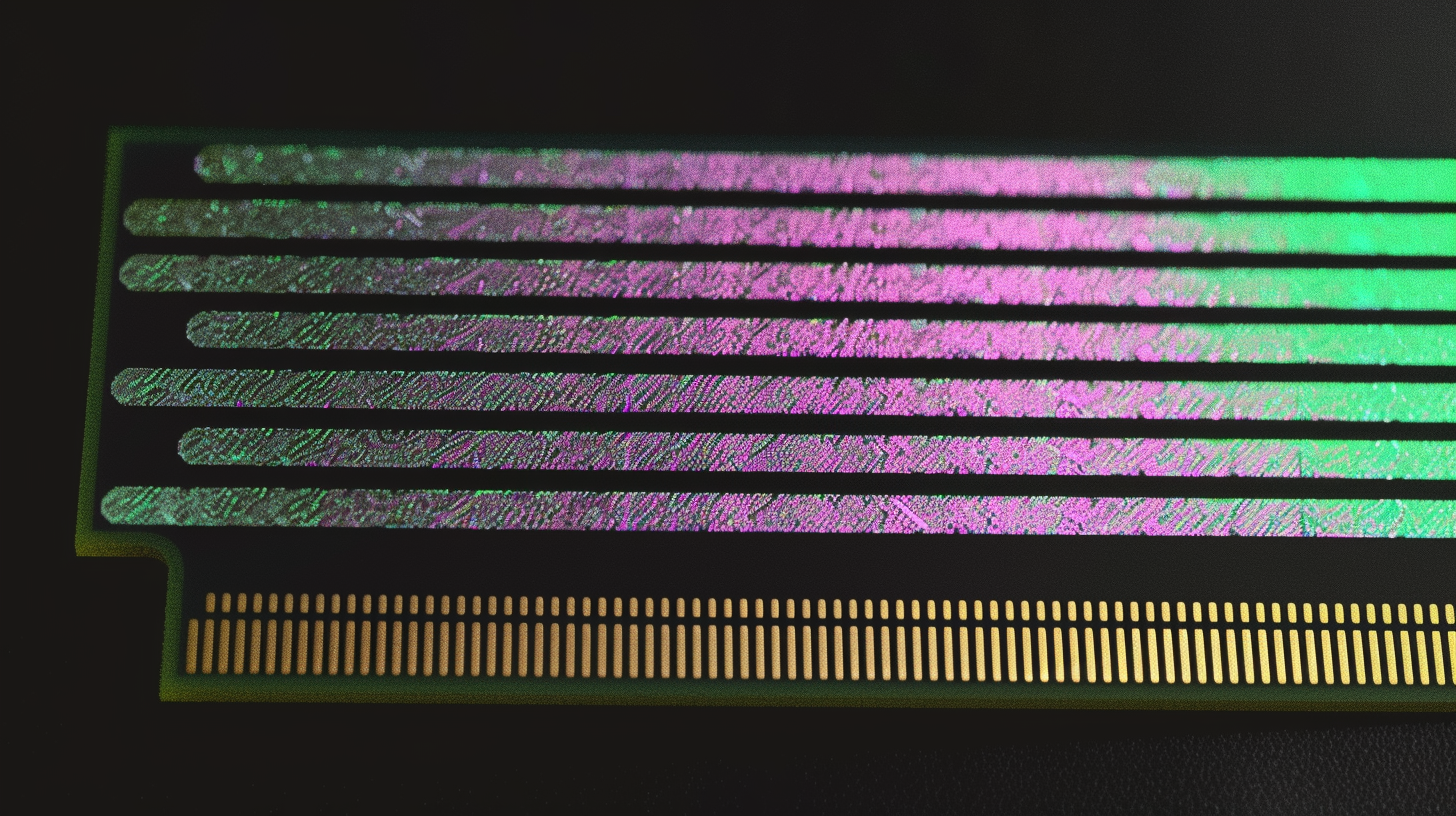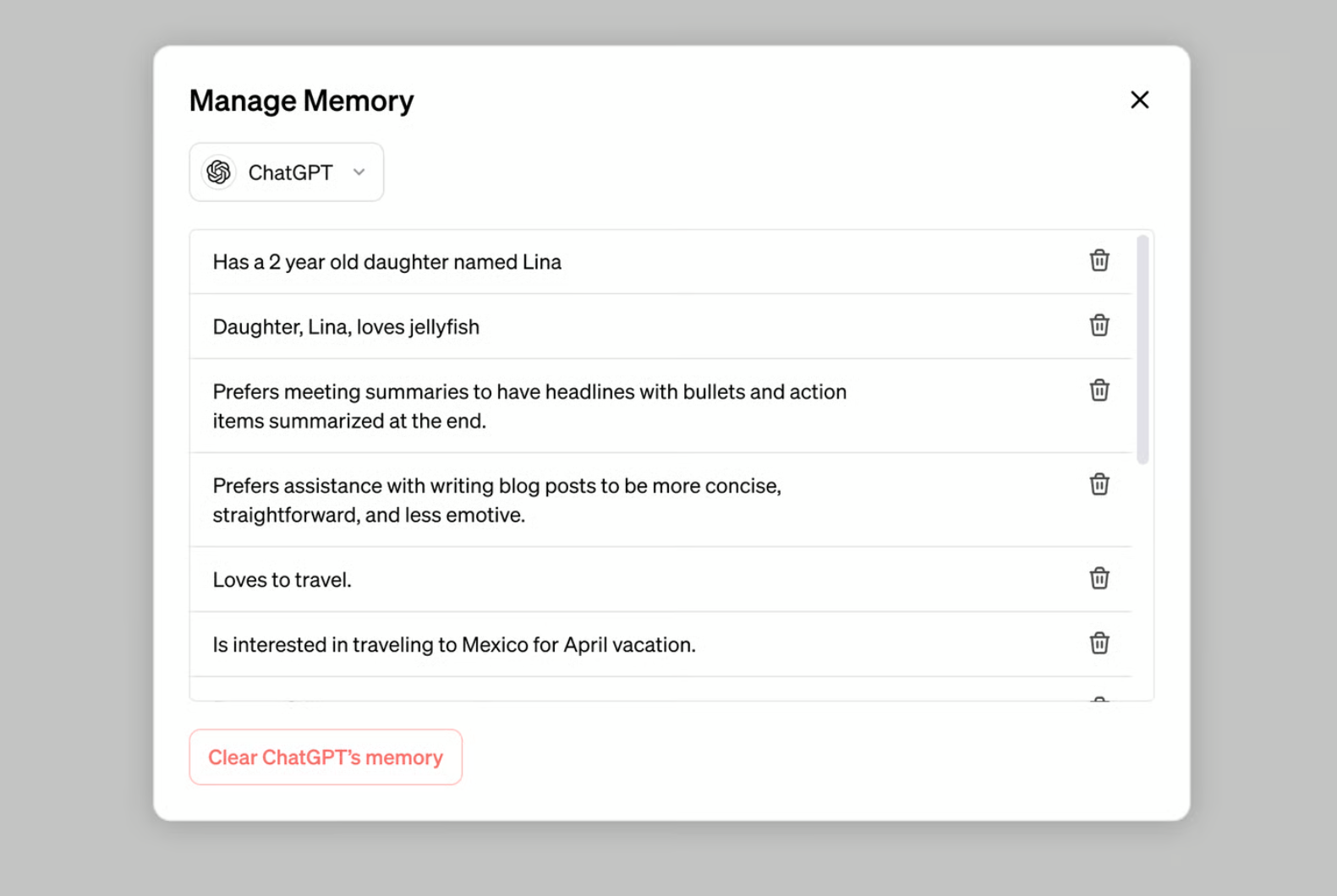OpenAI introduces "Memory" feature for ChatGPT Plus users

Update –
- Memory is being rolled out for ChatGPT Plus accounts.
Update from 29 April 2024:
OpenAI has enabled the "Memory" feature for all ChatGPT Plus users, the company announced via X. Memory allows users to tell ChatGPT things they want it to remember across chats. The feature can be turned on and off in the settings.
To use memory, simply start a new chat and tell ChatGPT what you want it to remember. This feature is designed to extend ChatGPT's capabilities by allowing the model to retain the context of previous conversations across chats.
Video: OpenAI
OpenAI said that Memory is not "currently available" in Europe and Korea, without giving a reason. Memory will also be available to Team and Enterprise customers and GPTs in the future.
Details of the technical implementation and privacy aspects of Memory have not yet been released by OpenAI.
Original article from February 13, 2024:
OpenAI gives ChatGPT a memory for cross-chat learning
OpenAI is testing a new memory feature for ChatGPT: The system can learn from conversations and retrieve past content in new conversations.
The feature, which was leaked twice in December, allows ChatGPT to learn from previous chats and should make the chatbot more useful overall, according to OpenAI. Until now, each new chat started a new conversation without any prior knowledge.
Users can control ChatGPT's memory and instruct it to remember or forget certain details - either directly in the chat or through the settings.

A temporary chat can be used for chats without memory. Temporary chats do not appear in history, do not use memory, and are not used to train OpenAI's models. Memory can also be turned off completely.
Temporary chats should be particularly useful for teams that share an account but do not work on the same topics. In this case, cross-chat memory would be more of a hindrance. So for OpenAI, storage is an opportunity to sell more accounts if it proves useful.
The new feature is currently only available to a few ChatGPT Free and Plus users and can be enabled in the settings under "Personalization" and "Memory". Plans for wider availability will be announced at a later date.
ChatGPT can now learn your style
According to OpenAI, the memory feature allows ChatGPT to learn the user's preferences and style, which should further increase efficiency at work.
For example, ChatGPT can now remember your preferred general tone, language, or format for blog posts; your preferred programming language and frameworks for coding; or your preferred charts for monthly business meetings.
Company and team user data, including memory, is excluded from OpenAI model training, and account owners can disable memory for their organization at any time.
Memory for GPTs will be available as the feature becomes more widely available. Each GPT will have its own memory.
OpenAI does not specify how ChatGPT's memory works. It probably uses text mining to create a database of facts from previous conversations, which are automatically extracted and incorporated into new responses that match the user's prompts. This would make it like an extended, automated form of the already available "Custom Instructions".
Overall, this feature is part of OpenAI's strategy to evolve ChatGPT into a personal assistant. The company is reportedly working on two agents for different use cases. ChatGPT's memory, like the networked GPTs, is a foretaste of the full assistant package.
However, the idea of a long-term memory for ChatGPT isn't new: in spring 2023, a developer presented MemoryGPT, a cross-chat memory based on the API, which used a combination of a vector database and a regular data store for high-level user data and goals.
AI News Without the Hype – Curated by Humans
As a THE DECODER subscriber, you get ad-free reading, our weekly AI newsletter, the exclusive "AI Radar" Frontier Report 6× per year, access to comments, and our complete archive.
Subscribe nowAI news without the hype
Curated by humans.
- Over 20 percent launch discount.
- Read without distractions – no Google ads.
- Access to comments and community discussions.
- Weekly AI newsletter.
- 6 times a year: “AI Radar” – deep dives on key AI topics.
- Up to 25 % off on KI Pro online events.
- Access to our full ten-year archive.
- Get the latest AI news from The Decoder.